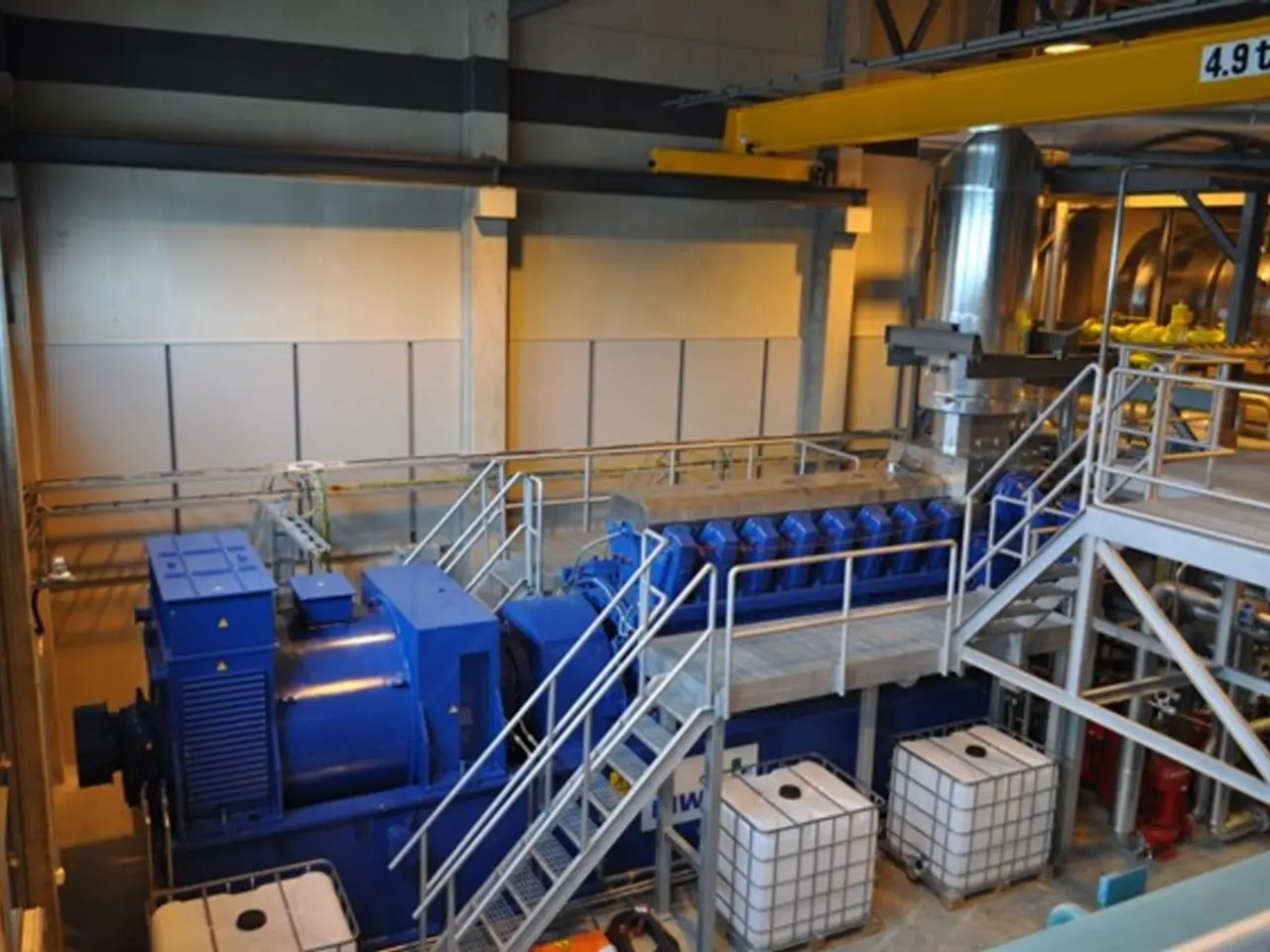Download accessible: Abridged version of Transportation Management Systems (TMS) - Enhance freight, routing, and expense management with cutting-edge TMS technologies
In today's fast-paced business world, companies are constantly seeking ways to streamline their operations and respond to market volatility. One solution that's gaining traction is the use of Transportation Management Systems (TMS).
The website is offering a free executive summary of its market research report on TMS. This summary provides a clear snapshot of what to expect from the full report, which delves into the evolving role of transportation technologies in streamlining freight planning and execution.
So, what are the key features and benefits of TMS as examined in the free executive summaries?
- Optimized route planning and load consolidation: TMS software creates efficient delivery routes by analysing distance, traffic, vehicle capacity, and fuel use, reducing travel time, fuel consumption, and transportation costs. Load consolidation maximises truck utilisation by combining shipments to reduce trips and environmental impact.
- Real-time tracking and monitoring: This feature enables proactive problem-solving by tracking shipments live, allowing quick responses to delays or disruptions. Detailed analytics help identify areas for continual improvement in routing and carrier performance.
- Cost reduction: By selecting cost-effective carriers, consolidating shipments, eliminating wasted mileage, and enabling better negotiation through data insights, TMS reduces freight and transportation costs significantly.
- Enhanced customer satisfaction: TMS assures reliable and timely deliveries with fewer errors or disruptions, leading to happier customers and increased loyalty.
- Greater efficiency and productivity: Automating repetitive tasks such as carrier booking, document preparation, and freight audit, reduces manual errors and frees logistics teams for more strategic activities.
- Better collaboration with carriers: Shared real-time information among warehouse, carriers, and logistics providers reduces misunderstandings, improves service quality, and motivates carriers through performance metrics.
- Optimized inventory management: Integration with inventory data helps maintain ideal inventory levels, avoiding overstock and stockouts by ensuring timely product availability.
- Data-driven strategic decision-making: TMS converts transportation data into insights to identify trends, negotiate carrier contracts, and continuously enhance logistics performance.
Additional features from some systems include AI-based route and vehicle utilization optimization, telematics integration for centralising position data and driver communication, digital consignment notes for paperless processes, and mobile driver apps improving real-time connection between drivers, dispatchers, and customers.
In summary, TMS platforms deliver comprehensive control over transportation planning, execution, monitoring, and analysis, resulting in cost savings, efficiency gains, enhanced customer service, sustainability, and smarter logistics management.
The full report, available for download, positions TMS within the broader supply chain software landscape and addresses external market pressures, including fuel price volatility and supply chain disruptions. It's a must-read for any business looking to optimise their logistics operations and stay ahead in today's competitive market.
- Transportation Management Systems (TMS) play a vital role in streamlining supply chain logistics, offering features like optimized route planning and load consolidation.
- In the financial aspect, TMS significantly reduces freight and transportation costs through cost-effective carrier selection, load consolidation, and eliminating wasted mileage.
- By employing real-time tracking and monitoring, TMS allows businesses to make proactive decisions, improve service quality, and increase customer satisfaction.
- As the industry evolves, TMS continues to leverage data-and-cloud-computing technology to drive strategic decisions, provide insights, and optimize inventory management.




